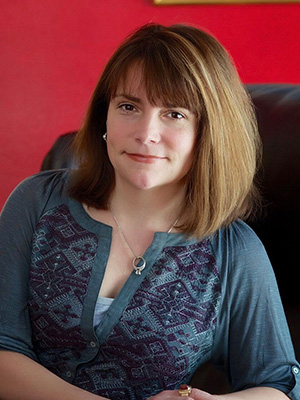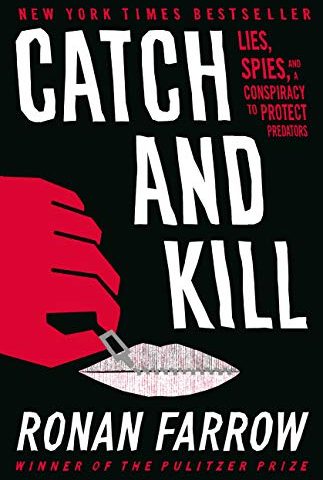Catch and Kill: Lies, Spies, and the Conspiracy to Protect Predators, by Ronan Farrow. Little, Brown and Co., 2019. Audiobook. Read by the author.
“The Catch and Kill Podcast.” Pineapple Street. Featuring Ronan Farrow and guests.
The last thing I planned to do was hear more about Harvey Weinstein. This producer-predator had all the airtime he needs, right? He coerced actresses into humiliating choices. His story is predictable, sad, and disgusting. Throw in The Today Show’s Matt Lauer, that smug letch with a button—an actual Bond-movie button!—under his desk to lock office doors, and I was full-up on repulsion, thank you.
But then I sampled chapter one, and the next thing I knew, I was finished. Catch and Kill is an investigation into the dark forces of entertainment, narrated by a literal child of Hollywood (Farrow is the son of Mia Farrow and Woody Allen), that’s wholly entertaining: yes, it’s predictable, sad, and disgusting, but Farrow’s masterful shaping—and voice acting— will keep you spellbound.
To start, Farrow casts himself as a detective following tantalizing clues passed through the peripheries of power. He’s a junior reporter for NBC, which means he’s in the room for top-level decisions, but flails around stars like Lauer and Tom Brokaw. As Farrow tells it, the Weinstein story arrives, unbidden, and so he starts digging.
But just when you think Weinstein is the only villain, NBC executives quash the piece and threaten his career. Detective story crashes into “Silkwood” intrigue as Farrow’s workplace fills with secret enemies. Plus, people are watching his apartment. Is Weinstein having him followed? Should he take a friend’s advice and carry a gun? And what is this “Black Cube” mentioned in anonymous texts?
It’s high drama, but Detective Farrow also has a haunting backstory. Years before, his sister Dylan accused their father, Woody Allen, of abuse—and now Farrow is weary of her saga. Yes, Farrow admits, he’s being a jerk, but he also exposes intricacies of siblinghood—how simply wanting to be the star of your own story makes you callous to others. The emotional heart of Catch and Kill is Farrow’s growing understanding of Dylan, as well as Weinstein’s victims, who he draws as professional and often painfully self-accusatory.
Farrow’s reading makes all of this sizzle. There must be 20 characters with speaking parts, and Farrow voices them all: his sister, his boyfriend, Rose McGowan, Matt Lauer, Ukrainian private investigators, even Italian actresses. Farrow’s version of Harvey Weinstein sounds like damp towels and ashtrays, and desperation. (I loved imagining Farrow throwing shade in the recording studio.) If you’re eager for more, there’s a “Catch and Kill” podcast featuring Farrow and the actual voices of his subjects.
Beyond entertaining, Farrow’s story is vital. The women usually marginalized are centered, given humanity and voices that vast networks of power seek to silence. Listen to them, Farrow seems to say, because they sound like any one of us.

By Professor Rebecca Meacham
Professor Rebecca Meacham directs the Writing and Applied Arts program and is Co-Chair of English. Her prose has been set to music, translated into Polish, and carved into woodblocks and letter-pressed by steamroller. She also helps organize Green Bay’s annual UntitledTown Book and Author Festival, where she once shared crème brûlée with Margaret Atwood and a puppet.
